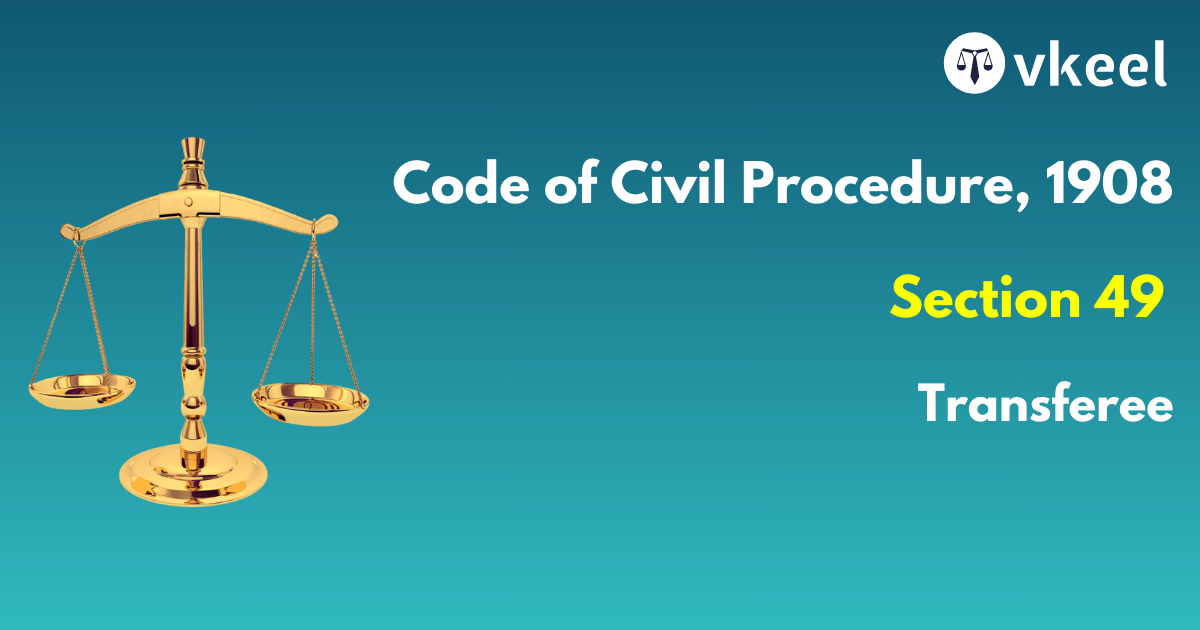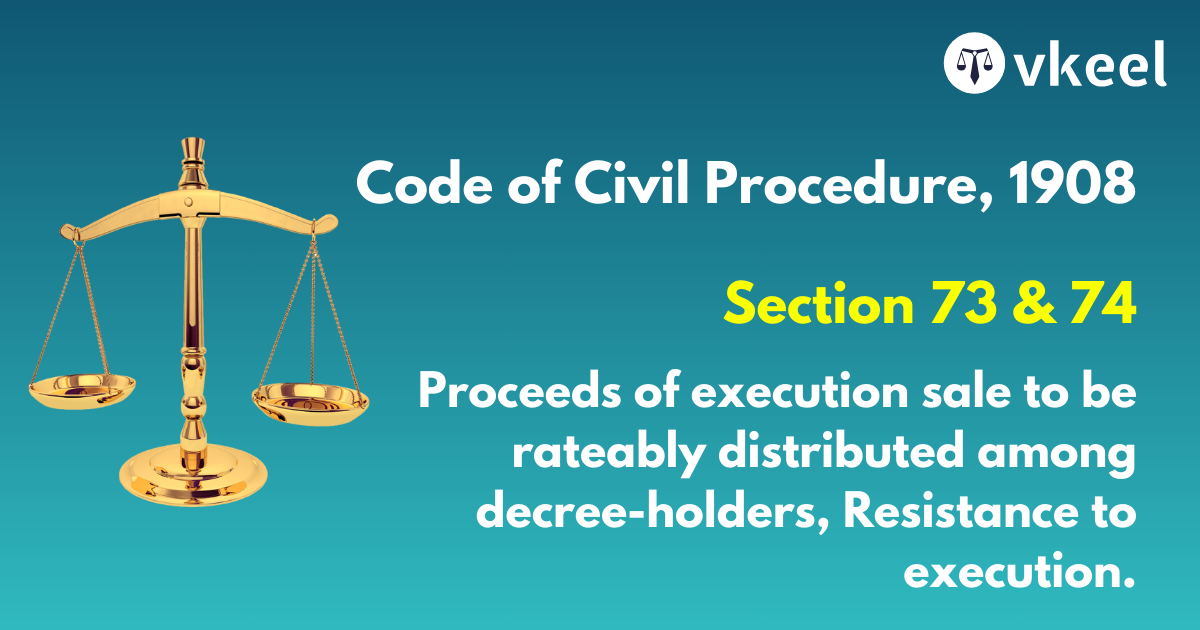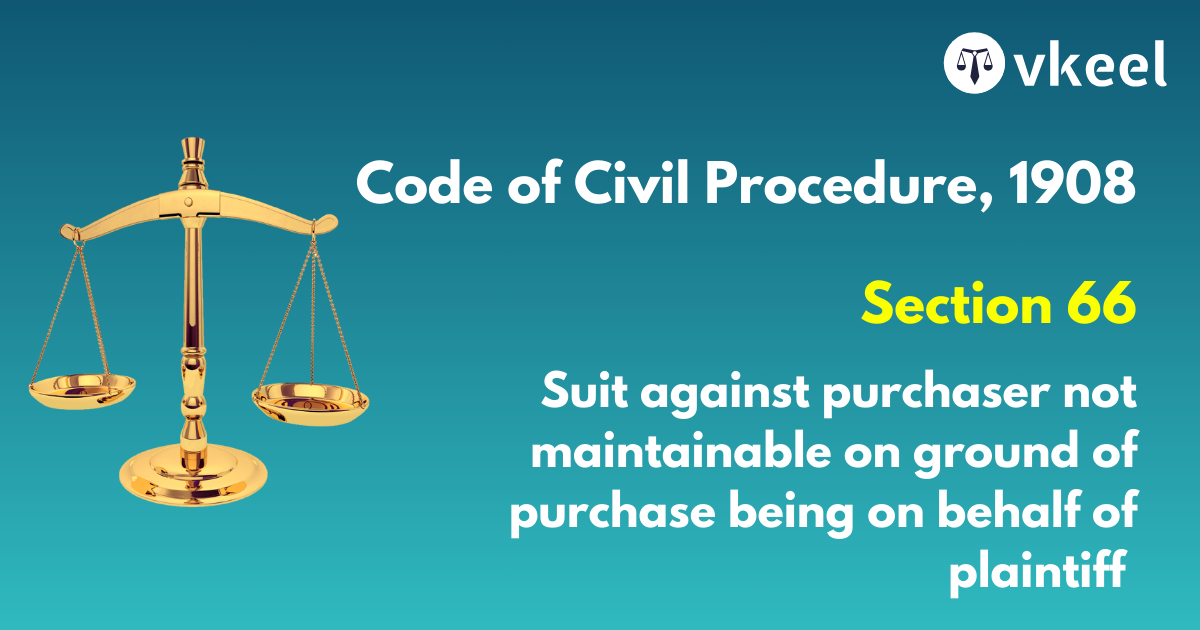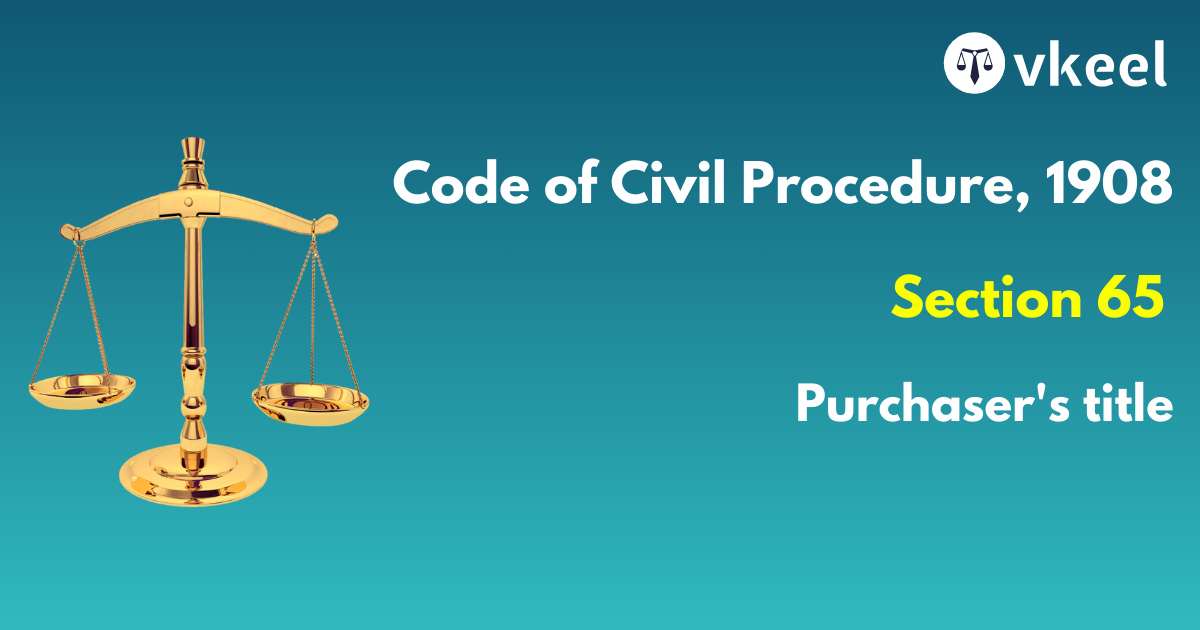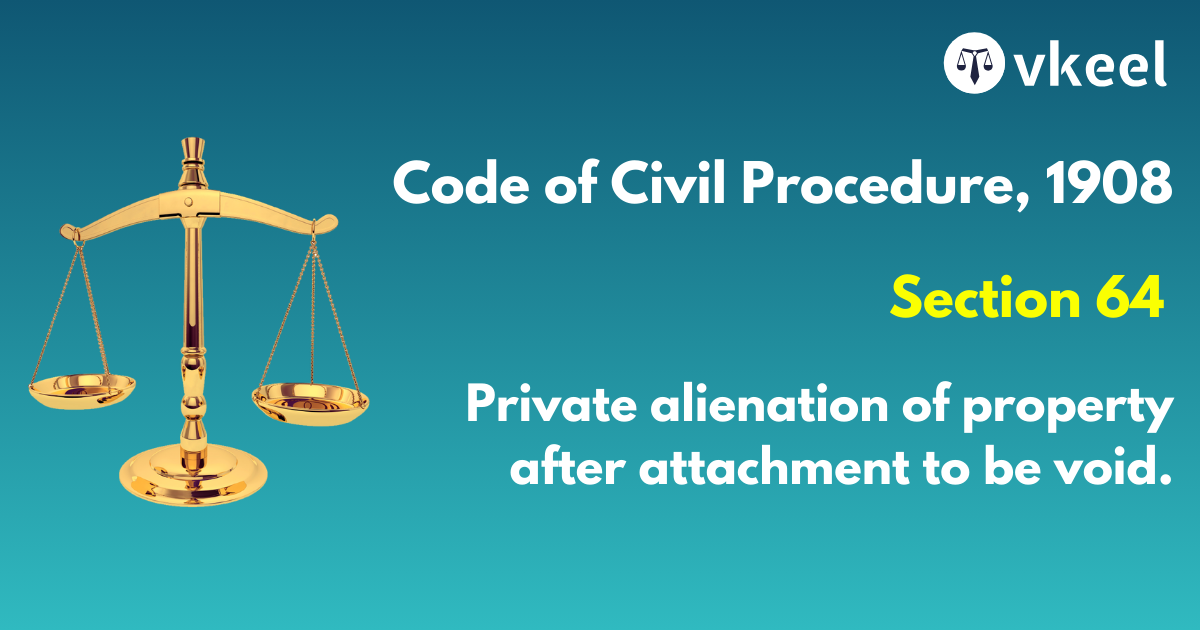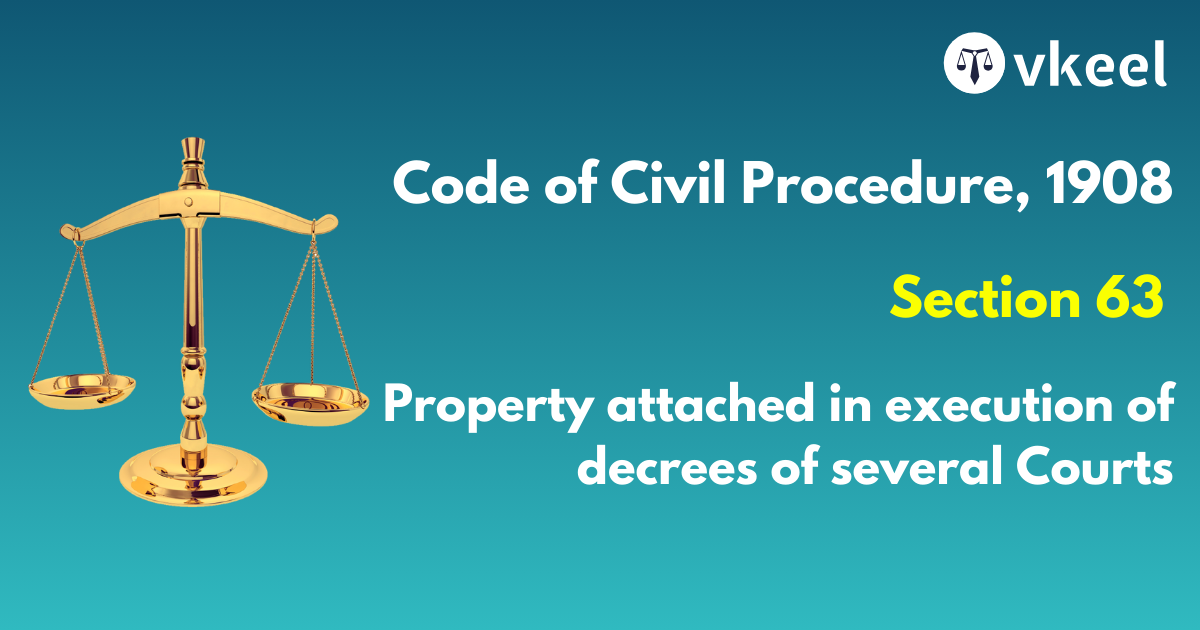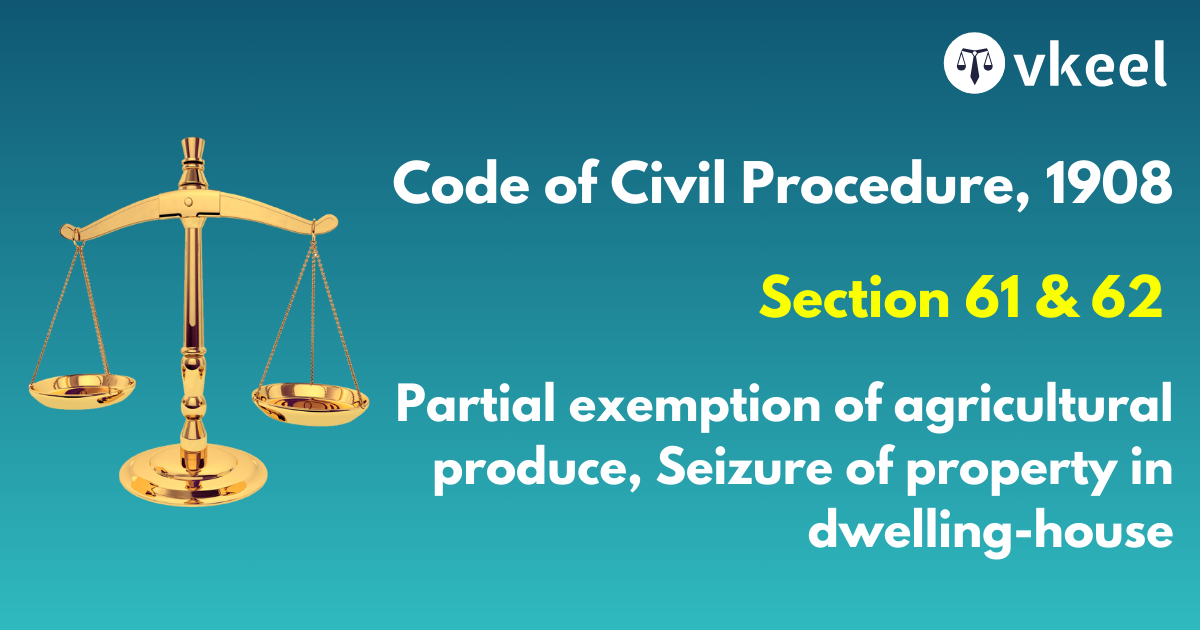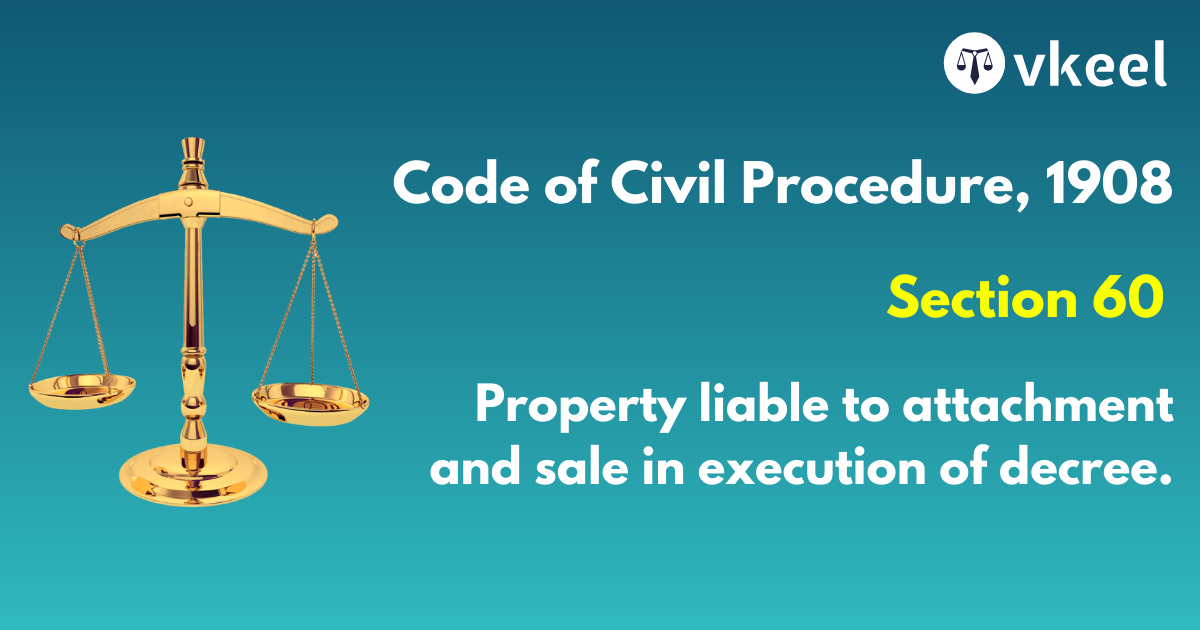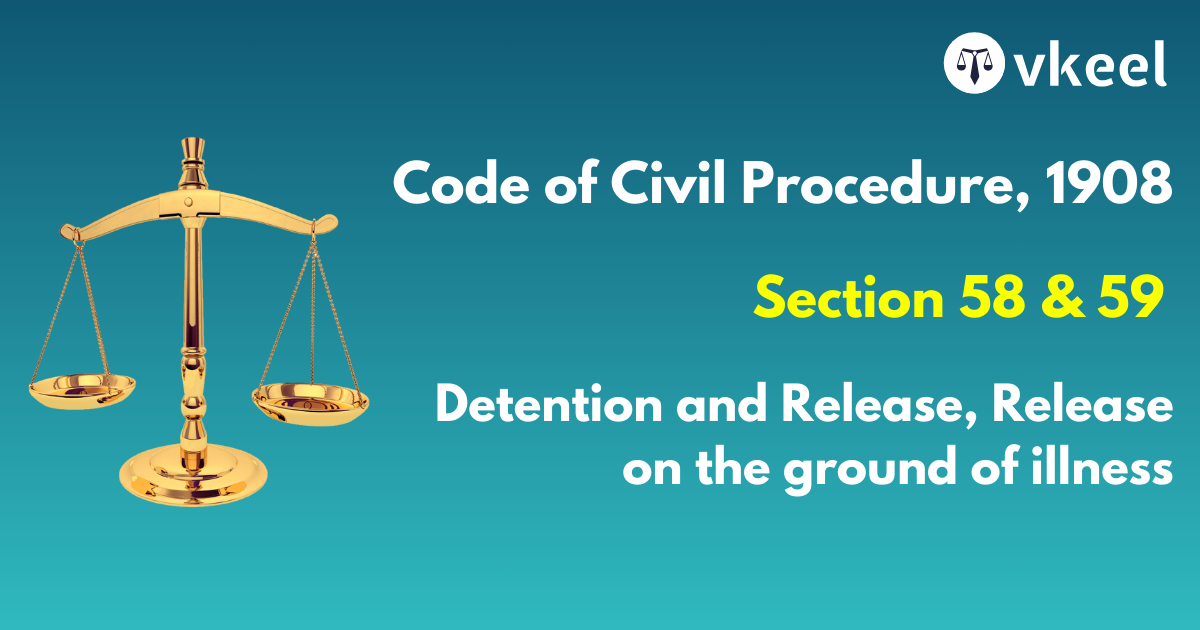Section 49 of the Code of Civil Procedure,1908
By Joy Puri
Introduction
Section 49 of the Code of Civil Procedure, 1908 talks about the rights of the purchaser of the property at the court’s auction.
The basic crux of the section 47 of the Code of Civil Procedure lies in the mere fact that the purchaser of the property steps into the shoes of the judgement debtor and is thereby subject to all the rights, any sort of legal claims and liabilities which the judgement debtor possessed.
Taking an example for the same, A bought a property worth 50 Lacs Rupees from the court’s auction which had a liability of 10 Lac Rupees. Now in the present scenario A has stepped into the shoes of the judgement debtor and will now have to pay the liabilities attached to it as if the judgement debtor would have done.
Section 49 of the Code of Civil Procedure, 1908
Transferee-
Every transferee of a decree shall hold the same subject to the equities (if any) which the judgment-debtor might have enforced against the original decree-holder.
Landmark Case Laws
Mohammadi Begam Sahiba Vs Abdul Majid Khan And Another, 1962
The question to be really examined is as to whether the provisions of section 49 of the said Code created a vested right in favour of the defendant and thus limited his liability in the matter of payment of rent. A right is said to be vested when the right to enjoyment, present or prospective, has become the property of some particular person or persons as a present interest independent of a contingency. It is a right which cannot be taken away without the consent of the owner. Such rights may arise from contracts or statute and from the operation of law. In our view, section 49 of the Code of Civil Procedure of the Bhopal State did not create a vested right within the meaning of that expression as ordinarily understood. It only enabled the Courts not to award interest or profit at a rate higher than 9 per cent, per annum when that section was in force. When that section ii was effaced from the statute book on the coming into operation of the new Code of Civil Procedure, it cannot be said that the rights of the parties would have still to be determined on the basis of the law as it stood in the year 1949. rights of the parties are normally to be governed by the law as it is in force at the time of the institution of the suit.
Palladugula Suryanarayana Vs Samayamanthula Nageswara Rao, 1945
Section 132 of the Transfer of Property Act makes no reference to notice, but the illustrations to the section make it quite clear that notice is not a factor. Therefore, the transferee of an actionable claim takes it subject to all liabilities and equities to which the transferor was subject, whether the transferee had any knowledge of them or not. As was pointed out in Daw Aye v. U Aye Maung, there is no difference in principle between section 49 of the Code of Civil Procedure and section 132 of the Transfer of Property Act.
Kaim Ali Vs Lakshmi, 1 BLR, 23.
The section means that A purchasing a decree from B which he held against C takes it to the equities which C might have had in respect of the decree which he (C) held against B, i.e., A should set off the amount payable by his assignor in respect of C’s decree
Gurushantappa Vs Nagappa, 1939
As to execution in the case of cross-decrees see O XXI rule 18 and also O XXI rule 11(2)(g). An equitable set off has been recognised in this country; in fact the right of a judgment-debtor to ask for stay under O XXI rule 29 is an equity which binds the assignee
Brij Vs Manmohan,1937
Order XXI rule 18 and section 49 are not inconsistent but if there is any inconsistency section 49 shall prevail
HN Datta & Co Vs Tarubala,1937
The court to which an application for transfer of a decree is made cannot go into the question of equities under section 49 and dismiss the application on such ground because the decree will be actually put into execution in the transferee court, if at all the decree is transferred.
Surya Vs Nageswara,1945
There is no difference in principle between this section and section 132 TP Act and the transferee takes the decree subject to all liabilities and equities to which the transferor was subject, whether or not the transferee had any knowledge of them.
Srinivasa Vs Venkatarama,1933
The equities are enforceable even though the assignee is without notice.
Conclusion
The existence of the Section 49 of the Code of Civil Procedure signifies that there is a balance among the rights of the third parties, the purchaser and the judgement debtor in the respective civil litigation and execution of decrees involved thereof.
Disclaimer:
The information provided in the article is for general informational purposes only, and is not intended to constitute legal advice or to be relied upon as a substitute for legal advice. Furthermore, any information contained in the article is not guaranteed to be current, complete or accurate. If you require legal advice or representation, you should contact an attorney or law firm directly. We are not responsible for any damages resulting from any reliance on the content of this website.

